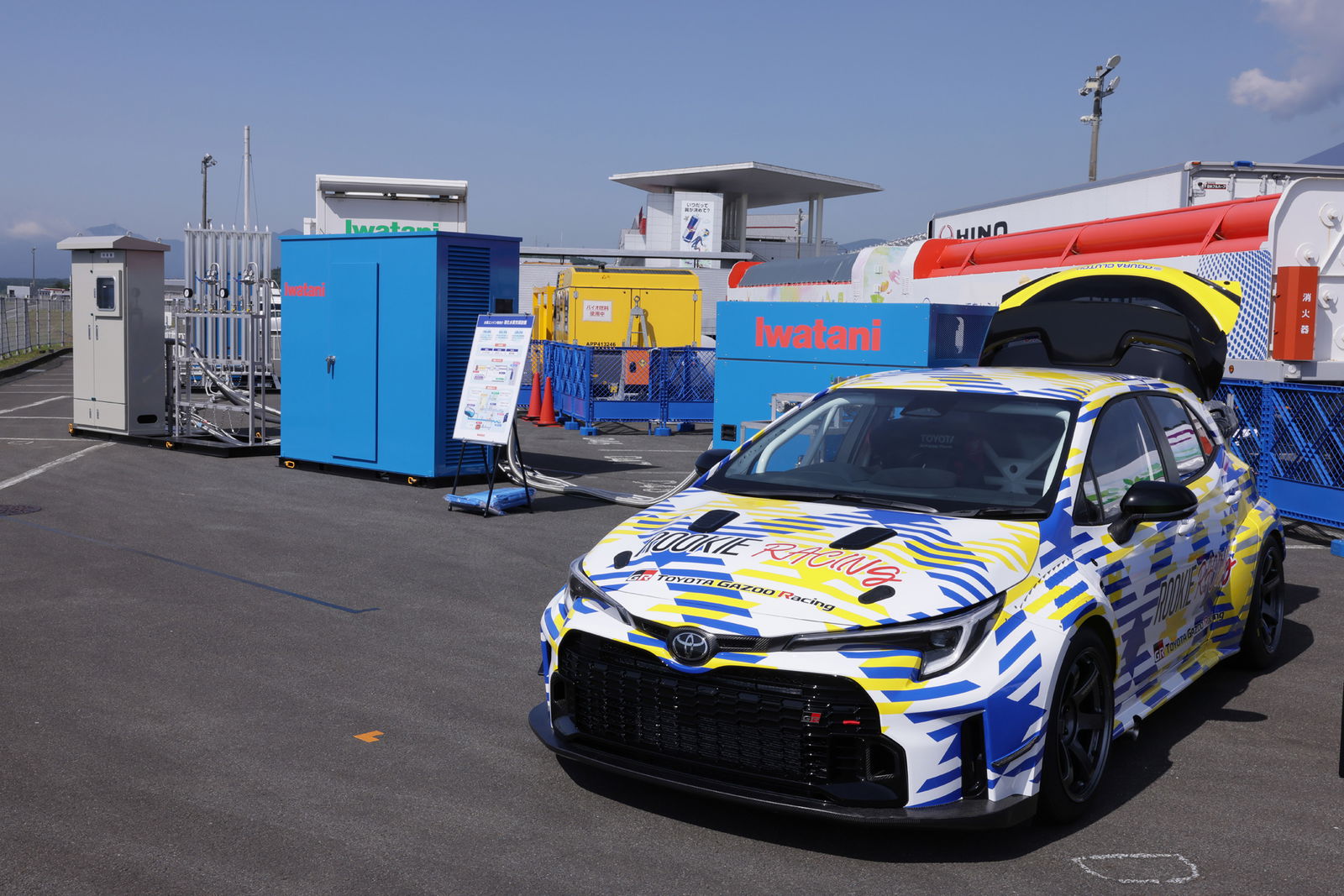Yamaha to develop hydrogen engine for Lexus off-roader
Yamaha’s involvement in Japanese-led hydrogen experiments continues, as it has now signed a deal to develop a hydrogen engine for Lexus.

Yamaha has been involved in the programme that also involves Kawasaki Heavy Industries (KHI) and brands such as Toyota and Mazda for a while now, and earlier this year showed the first hydrogen-fuelled engine it had helped to design and engineer.
That engine was used in a Toyota Corolla in last year’s 24 Hours of Fuji race, at the former home of the Japanese F1 Grand Prix. Now, almost a year on from that debut in Fuji, Toyota has announced plans to commercialise their hydrogen motors, and liquify the fuel.

This last point, the liquification of hydrogen, is the critical part. Whereas, at an ordinary ambient temperature, petrol or diesel is a liquid, at these temperatures hydrogen is a gas. That means that hydrogen has to be chilled to be liquified, and the temperature to which it needs to be cooled is -253 degrees-Celsius. The necessity to liquify the fuel is so that its density can be increased. By doing that, the volume which a certain amount of fuel takes up is reduced, and so more can fit into a tank. This is why hydrogen-fuelled space rockets - such as NASA’s moon mission hopeful SLS - have ice sheets around the external surface of the fuel cell before launch, because of the extremely low temperatures to which the hydrogen fuel - and the oxidant with which it is mixed - is chilled to in order to keep it liquified.
Within this Earth-bound, road-going project, the chilling and liquifying of hydrogen has been the concern of Kawasaki, which as we noted last year has been working on hydrogen fuels since 2010.
Presumably, the findings of Kawasaki will become useful for Yamaha while they are developing this engine for Lexus. The agreement Yamaha signed to help develop the engine was made in May of this year with Toyota, who owns Lexus. The car which will make use of the Yamaha-developed engine will be a prototype called the ROV Concept, which in a press release from Toyota is described as “Lexus’ first hydrogen-powered, four-wheeled recreational off-highway vehicle.”

If we take ‘off-highway’ to have equal meaning to ‘off-road’, it is possible to assume that this four-wheeler could be something not too far away from something Yamaha already makes. Of course, it could be possible that the hydrogen Lexus will be something larger, but there is also a possibility that the result of this collaboration could be an engine to sit in a side-by-side or UTV. Yamaha already has its RMAX leisure range of UTVs, as well as the sportier YXZ1000R SS SE, so could also lend a hand on the design of the vehicle itself if necessary. On the other hand, Lexus could provide a snappier name than the ‘sportier’ of Yamaha’s options. A UTV is undeniably recreational, and therefore fulfils that end of the deal, too, and the benefits for Yamaha in this case are more significant than if the motor goes in a 4x4.
None of this, though, makes much difference to people like you or me until a hydrogen motor lands in a Yamaha or Kawasaki motorcycle, though. But, on that note, with the smaller size of a motorcycle to a car (which is a strange thing to have to point out but here we are), the liquefaction of the fuel is even more important for two-wheeled transport than four-wheeled, and so it might be a round-about kind of way of getting there, but there is definite possibilities that the knowledge gained from Kawasaki and Yamaha in this (primarily) four-wheeled venture proves fruitful in the future on two-wheels.
.jpg?width=1600)
